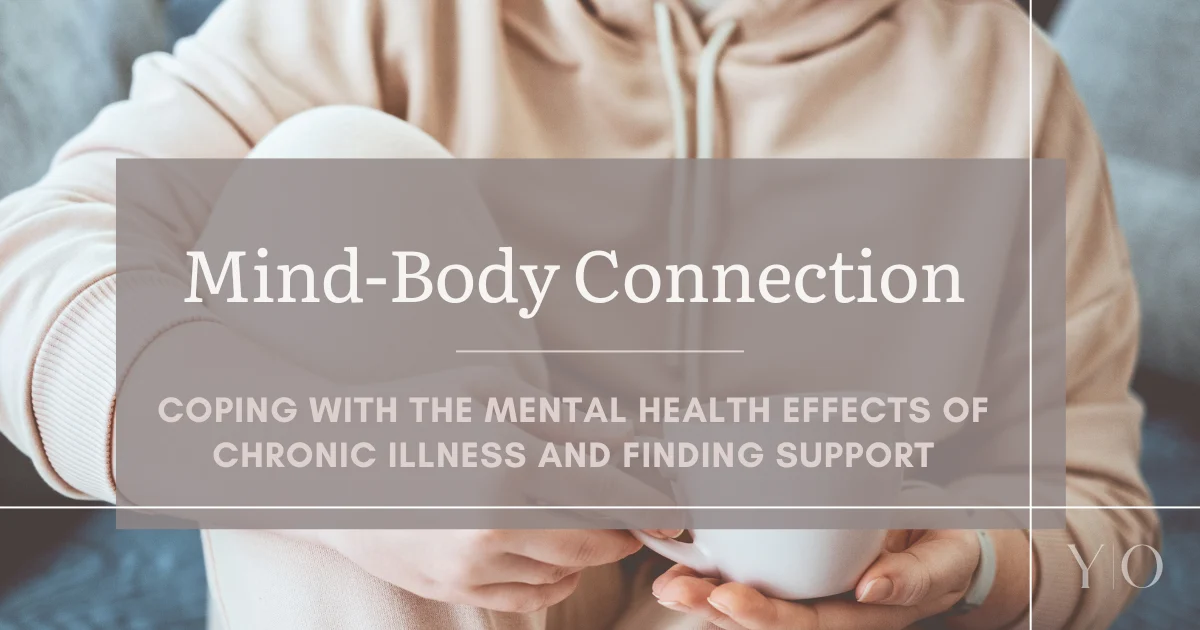Living with a chronic medical condition can impact nearly every aspect of daily life from physical health to social relationships and mental well-being. Managing ongoing symptoms, navigating treatment plans, and coping with uncertainty often takes a significant emotional toll. What many people don’t realize is that chronic illness and mental health are interconnected. Addressing both is essential for improving overall well-being.
Table of Contents
The Emotional Impact of Chronic Illness
Chronic illnesses such as diabetes, heart disease, chronic pain, autoimmune disorders, or cancer is a long-term health condition that requires ongoing management. While physical symptoms are often the primary focus of treatment, the emotional impact can be just as significant. Many people with chronic illnesses experience feelings of grief, frustration, anxiety, or sadness as they adjust to life with their condition. The unpredictability of symptoms, changes in lifestyle, and concerns about the future can lead to chronic stress, depression, and anxiety. Additionally, physical symptoms themselves such as fatigue, pain, or sleep disturbances can negatively impact mood, creating a cycle that feels hard to break.
How Chronic Illness Affects Mental Health
Living with a chronic condition can bring unique mental health challenges, including:
- Grief and loss: Adjusting to a new reality after receiving a diagnosis or experiencing a change in physical abilities can trigger feelings of grief.
- Anxiety about the future: Managing an unpredictable condition can lead to worry about symptom flare-ups, long-term health outcomes, or the ability to maintain independence.
- Depression and hopelessness: Persistent pain, fatigue, or limitations in daily functioning can contribute to feelings of sadness or hopelessness over time.
- Social isolation: Physical limitations or medical appointments can lead to social withdrawal, which may intensify feelings of loneliness or disconnection.
Supporting Your Mental Health While Managing Chronic Illness
Although chronic illness presents unique challenges, there are effective strategies for protecting and improving your mental well-being:
- Acknowledge Your Emotions
It’s normal to feel a range of emotions when living with a chronic illness. Allow yourself space to grieve losses, feel frustrated, or worry about the future. Acknowledging these emotions rather than pushing them aside is a vital step toward emotional processing and healing. - Prioritize Rest and Energy Management
Chronic illness often comes with physical fatigue or limitations. Learning to pace yourself, rest when needed, and honor your body’s limits can help reduce feelings of overwhelm and burnout. Simple adjustments like breaking tasks into smaller steps or using energy-saving strategies can make a meaningful difference. - Stay Connected
Social support is a powerful buffer against the emotional toll of chronic illness. Whether it’s leaning on friends, family, support groups, or online communities, having people who understand and offer support can help reduce feelings of isolation. - Address Negative Thought Patterns
Chronic illness can sometimes lead to self-critical or hopeless thoughts (e.g., I’ll never feel like myself again or I’m a burden to others). Acceptance and Commitment Therapy (ACT), Cognitive-behavioral therapy (CBT) and other therapeutic approaches can help challenge these unhelpful thought patterns and develop a more compassionate inner dialogue. - Seek Professional Support When Needed
Therapists who specialize in chronic illness can help you navigate the emotional challenges that come with your condition. Therapy can provide tools to manage anxiety, depression, grief, and uncertainty ultimately improving your overall quality of life. Some therapeutic approaches commonly used for chronic illness include:
- Acceptance and Commitment Therapy (ACT): Encourages acceptance of difficult experiences while helping you live in alignment with your values.
- Cognitive Behavioral Therapy (CBT): Helps individuals reframe negative thoughts and develop effective coping strategies for anxiety, depression, and a range of mental health concerns.
- Cognitive Behavioral Therapy for Chronic Pain (CBT-CP): Helps individuals reframe negative thoughts and develop effective coping strategies for pain and discomfort.
- Mindfulness-Based Interventions: Promote awareness and grounding techniques to reduce stress and enhance overall well-being.
Moving Forward
Living with a chronic medical condition can be incredibly challenging, but it doesn’t have to define your entire life. By acknowledging the emotional impact, seeking support, and adopting healthy coping strategies, it is possible to find balance and meaning even in the face of ongoing health challenges.
If you’re navigating the challenges of living with a chronic medical condition and it’s impacting your mental health, know that support is available. Therapy can provide you with practical tools to manage the challenges, reduce distress, and regain a sense of control. If you’re ready to take the next step toward feeling more empowered in your health journey, don’t hesitate to reach out to Dr. Oren at 775-525-8100. Together, you can work toward finding balance, improving coping strategies, and reclaiming a sense of control in your life. You don’t have to face this alone help is here.
Please note that the information provided in this blog post is for informational purposes only and is not intended as a substitute for professional therapy or mental health treatment.
Learn More: Expert Advice and References
- Anxiety and Depression Association of America (ADAA)
Explores the link between chronic illness and mental health, including the increased risk of depression, anxiety, and related disorders.
https://adaa.org/understanding-anxiety/chronic-illness-disease-anxiety-depression - Johns Hopkins Bloomberg School of Public Health
Discusses the intersection of mental health and chronic disease, highlighting the increased prevalence of depression and anxiety among individuals with chronic illnesses.
https://publichealth.jhu.edu/2021/the-intersection-of-mental-health-and-chronic-disease - Mayo Clinic
Provides practical tips on living well with chronic conditions, including stress management strategies and improving overall well-being.
https://www.mayoclinic.org/diseases-conditions/depression/expert-answers/pain-and-depression/faq-20057823
https://www.mayoclinicproceedings.org/article/S0025-6196(16)30182-3/fulltext - National Institute of Mental Health (NIMH)
Offers comprehensive information on the connection between chronic illnesses and mental health, including strategies for coping and treatment options.
https://www.nimh.nih.gov/health/publications/chronic-illness-mental-health



